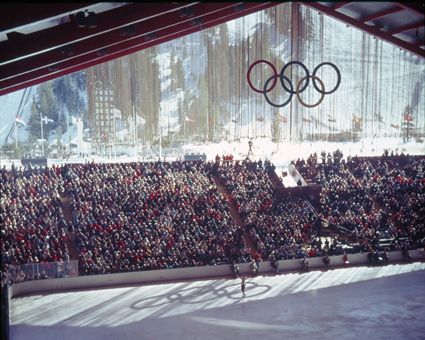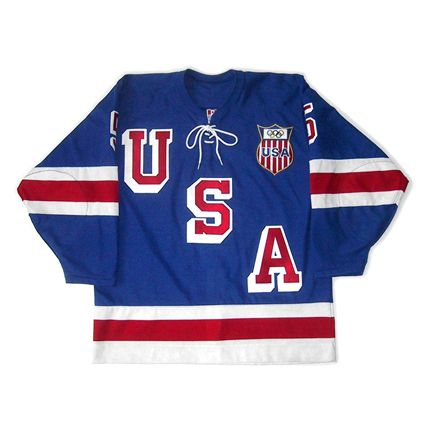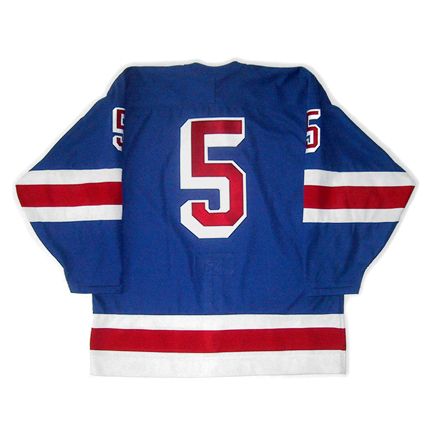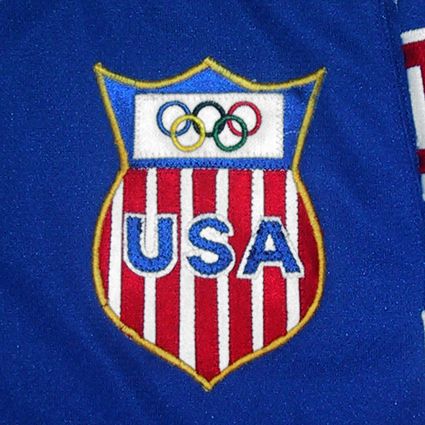The 1960 United States Olympic Team had played together in preparation for their entry into the 1960 Olympics in Squaw Valley, California. Feeling that the team wasn't good enough to win after completing their training schedule of games, coach Jack Riley said to Walter Brown, "Walter, do you want to go into the Olympics with a chance to win or no chance to win?"
Brown responded "I want a chance to win." to which Riley replied "Then I have to bring in the Clearys."
"Do it," said Brown.
Prior to the arrival of the Bill Cleary, a top scorer on the 1956 Olympic team, and his brother Bob Cleary, the players said they were not going to compete if the Clearys were added to the team.
"Let them quit," Riley said. "Find out where they want a plane ticket and get them out of here."
The addition of the Clearys cost Bob Dupuis and Herb Brooks, due to his lack of international experience, their roster spots.
The Cleary brothers were given the cold shoulder by the remainder of the team, unhappy with the late addition, which cost two of their friends and teammates their roster spots despite having been with the team for months. One of the reasons the players were upset was, while there was no doubting the talent of Billy, they did not feel his brother Bob would have been on the team if not for Billy insisting they come as part of a package deal and Riley agreeing to it in order to get Billy on the team.
Before their first game, Bill Cleary addressed the team concerning their treatment of him. "I didn't come three thousand miles to lose. We don't have to hug and kiss. I just want you to pass me the puck."
Goaltender Jack McCartan agreed. "We've worked too hard to let this get in the way." McCartan had, in fact, been cut from the team at one point when coach Riley didn't like his playing style, but when he gathered the players at one point to ask how they could improve the team, the players told him to bring back McCartan.
John Mayasich, another top scorer in 1956, was also added to the team, but Riley had told the team all along that Mayasich would be a late addition to the roster. So late, that he didn't meet the team until the day before the Olympics.
Mayasich and the Clearys were added to the team so late they had to be retouched into the team photo, with their heads added to the bodies of the players they replaced on the roster! Notice how Billy Cleary's head in the front row differs in contrast and lighting from the other front row players in particular.
Once the games started, The United States defeated favored Czechoslovakia 7-5 in their opening game after trailing 4-3 after two periods. Despite only having one practice with the team, the supremely talented Mayasich had a hat trick, all unassisted!
They next routed Australia 12-1. Their two wins advanced them to the medal round, a round robin schedule of give games to determine the medal winners.
First up for the Americans in the first televised Olympics was Sweden, who they defeated 6-3 behind a hat trick from Roger Christian. Germany was the next team to fall, 9-1 thanks to four goals by Billy Cleary.
The Soviets had fallen a point behind the standings due to a tie with Sweden, leaving the US and Canada tied at the top of the table with 4 points each before their vital game. The Canadians were heavily favored before the game, but the Americans came out on the attack. Bob Cleary scored on a rebound of a Mayasich shot to give the US the confidence they could play with the Canadians. Later, the US went up by two when Paul Johnson, who Riley had been advised not to play because of his defensive play, scored on a slap shot while on a breakaway.
Although Canada scored one goal, McCartan held the Canadians at bay to hold on for the victory and put the Americans at the top of the table by themselves.
Coach Riley said about the Canadians, "If we played the Canadians 10 games, they'd win nine of them."
Things did not get any easier for the United States, with the Soviet Union next on the schedule, a team they had never beaten.
The Soviet Union had been involved in international hockey since 1954, winning the World Championships on their debut and then taking the gold medal in their first try at the Olympics in 1956, beginning a dynasty that would last until 1991.
The 85oo seat covered, but open air, Blyth Arena overflowed with 10,000 people, including some sitting on the player's bench! Notice the shadows on the ice from the sun coming through the east side of the arena, which was open to the elements.
The first goal of the game was scored by Bill Cleary on an assist from his brother Bob. The Soviets came right back and evened the score and then added a second to take the lead at 2-1. After another close call when Mayasich cleared a puck off the line, Bill Christian evened the score for the United States from his brother Roger Christian at the end of two periods.
The third period saw the United States pressure the Soviets and score with 5 minutes remaining to edge back into the lead when Bill Christian scored his second of the game on an assist from Roger Christian and Tommy Williams from right in front of the net.
The US, behind the stellar goaltending of McCartan, held on for the 3-2 victory and put themselves in position to lock up the gold medal in a rematch with Czechoslovakia in a game scheduled for 8 AM the following morning! The organizers had assumed the gold medal would come down to a game between Canada and the Soviet Union and scheduled that contest for the prime spot later in the day.
Riley told his squad that a key to the game was keeping the Czechs from scoring early and not letting them get into the game. The boys must not have been awake yet to hear him, as the Czechs won the opening faceoff, skated down the ice and promptly scored the first goal of the game with just eight seconds elapsed!
The teams swapped goals and completed the first period tied at 3-3. Czechoslovakia scored the only goal of the second period and led 4-3 at the second intermission. While the team was in the locker room preparing for the third period, the captain of the Soviet team, Nikolai Sologubov, came into the American locker room to suggest the team breathe oxygen between periods to re-energize at the high altitude of Squaw Valley, presumably in an effort to ensure that the Soviets would finish in the medal placings, prevent the Czechs from finishing ahead of them and keep the Canadians from winning the gold.
Roger Christian tied the game five minutes into the third followed by a pair of goals from Bob Clearly. Roger Christian deflected in a shot from Mayasich to complete a hat trick. The rout continued when Bill Clearly went coast-to-coast, splitting the defense in the process, and walked around the sprawling Czech goaltender for the easiest goal of his life. Roger Christian later completed the scoring with his fourth of the game, and the United States sixth of the period, to secure the gold medal with a 9-4 final score and a unbeaten 7-0 record for the tournament.
Meanwhile, back in Minnesota, Brooks watched the gold medal game at home on television with his father. When the United States won gold, his father Herb Sr. turned to him and said "Well, it looks like they cut the right guy."
Brooks would go on to play for both the 1964 and 1968 United States Olympic teams, as well as six other US National teams, coach the University of Minnesota to three national championships and then lead a team of college kids to defeat the Soviet Union in the "Miracle on Ice" and then capture the gold medal two days later with a victory over Finland.
Today's featured jersey is a 1960 United States Herb Brooks jersey. This 1960 gold medal jersey features Brooks number 5 as worn while he was still with the team and a wonderfully reproduced shield with embroidered Olympic rings and sewn on stripes and USA lettering.
Here is actual game footage of the United States defeating the Soviet Union 3-2 in Squaw Valley.
This next clip is from the final game of the tournament when the United States captured the gold medal against Czechoslovakia.
Here, 1960 Olympic gold medalist John Mayasich is interviewed at the Vancouver Olympics.
Finally, here is the trailer for the movie "Forgotten Miracle" about the 1960 team in the words of those who lived it.
Dasherboard: In yesterday's bronze medal game, Finland broke out on top with a power play goal from Sami Salo late in the first period, only to have Slovakia own the second period with a trio of goals, the first two on the power play and the third shorthanded, from Marian Gaborik, Marian Hossa and the rejuvenated Pavol Demitra to take a 3-1 lead into the third period.
Finland began their comeback drive with a goal from Niklas Hagman off a deflection just after the first penalty of a two-man advantage expired to cut the deficit to 3-2.
Olli Jokinen tied the game a little over a minute and a half later with a shot from the slot to even the score and followed that with his second goal of the period exactly two minutes later to take the wind out of Slovakia's sails and give Finland a lead they would never lose.
Valtteri Filppula sealed the bronze with an empty net goal with 11 seconds remaining to complete a four goal third period for Finland and giving the fans at that end of the ice a close up view of every single one of the eight goals scored during the game!
For Finnish veteran Teemu Selanne, it was a nice way to conclude his international career with an Olympic medal.
Today's Gold Medal Final pits the surprising United States, undefeated so far in the tournament against the host team Canada.
The Canadians are under enormous pressure to win at home where nothing less than gold going into the tournament was acceptable, and even more so now that their opponents are their rivals from the United States.
Canada did not finish strong against Slovakia, perhaps taking away some of the momentum they had built with dominant wins over Germany and especially Russia, but it could have also acted as a reminder to Canada to play a full 60 minutes.
The United States will be looking to continue their strong team play and will depend on goaltender Ryan Miller to continue his solid play in goal to capture their third gold medal in Olympic history on the 50th anniversary of their first gold in Squaw Valley in 1960.












Looks like I have another holiday to celebrate, even if I am not Icelandic.
ReplyDeleteAnd thanks for the info on the history of hockey in Iceland. All new to me. (I laugh thinking about the second "Mighty Ducks" movie and how Iceland's team is depicted as the best in the world.)